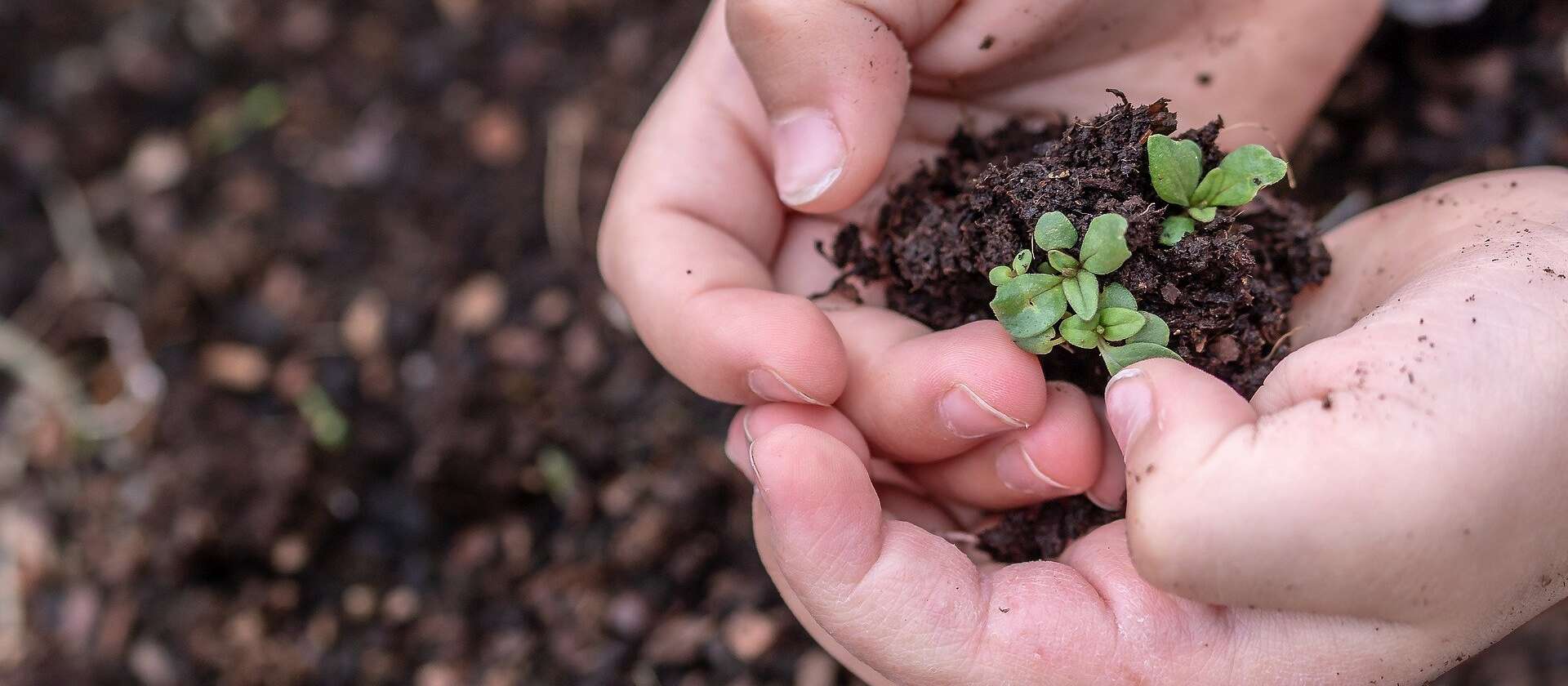Dec. 5 is World Soil Day, intended to raise awareness of the importance of soil health and sustainable soil management.
Soil health and sustainable soil management are an ongoing focus for several University of Guelph researchers whose conservation work has become increasingly important in countering the risk of climate change impacts while growing enough food for the planet.
Soils at Guelph is a knowledge mobilization initiative in U of G’s Ontario Agricultural College that aims to build bridges among farmers, government and the public to improve soil health.
Soil is the foundation of civilizations, food security, water quality and thriving ecosystems, but around the world, this resource is at risk. Locally, an estimated 68 per cent of Ontario farmland is in an unsustainable erosion risk category, and 82 per cent is losing carbon to the atmosphere, contributing to climate change.
Established in 2018, Soils at Guelph is led by Drs. Laura Van Eerd, Kari Dunfield and Claudia Wagner-Riddle, all professors in the School of Environmental Sciences. Their research aims to develop agricultural practices that benefit soil, farmers, society and climate.
Cover crops are plants grown outside the normal cropping season to improve soil quality. Van Eerd, an expert in sustainable soil management at U of G’s Ridgetown Campus, is a global research leader in the topic.
Her long-term experiments are some of the first of their kind. She has shown that cover crops can sequester an extra 10-20 tonnes of carbon per hectare over a decade, improving soil and reducing agricultural greenhouse gas emissions.
“For a lot of innovative and early-adopting growers, what I hear from them is that cover cropping has made farming fun again,” said Van Eerd, featured in Ontario Grain Farmer magazine. “It’s seeing new things, thinking about new ways and new approaches, and that approach is challenging but it’s fun.”
Supported by the Ontario Agri-Food Innovation Alliance and the Grain Farmers of Ontario, she’s leading a study with Dr. Joshua Nasielski, Department of Plant Agriculture, to evaluate how well cover crops planted in strips (“biostrips”) can replace tillage to prepare soil for planting corn (see video below).
Soil scientists don’t like using the D-word for their work.
Dirt is dead, but soil is alive and teeming with billions of microorganisms, says Dunfield, holder of the Canada Research Chair in the Environmental Microbiology of Agro-Ecosystems. As an expert in soil microbiology, she uses the latest genetics technology to sequence microbial communities in farm soils.
“For a lot of innovative and early-adopting growers, what I hear from them is that cover cropping has made farming fun again”
“Sometimes farmers talk about having the most microbes, so trying to get the biggest microbial population,” she said, “and I think that’s maybe less important than a really diverse microbial population.”
She said more diverse microbes make soil more resilient. But her work has shown that some soil management practices can alter the microbial community, reducing both diversity and resilience. By causing less disturbance through tillage and by increasing their crop diversity, farmers can support healthier, more resilient microbial communities.
Wagner-Riddle, a professor of agrometeorology, and her team study how different crop rotations and cover crops improve the soil and the environment. She uses a state-of-the-art soil health monitoring station at the Ontario Crops Research Centre in Elora, Ont.
Referring to studies using an instrument called a lysimeter, she said, “We had an amazing 70-per-cent reduction in the loss of nutrients through the bottom of the root zone. The cover crops picked up nutrients in the soil that were ready to be lost, and then those nutrients can be available for the following crop as opposed to being leached into the groundwater.”
Collecting more than 1.8 million data points per day, this experiment is the first of its kind in North America. Wagner-Riddle also leads a national graduate student training program on Climate-Smart Soils, providing much-needed training for highly qualified personnel to ensure a sustainable future for agri-food in Canada.
To learn more about this research and soil science at the University of Guelph, visit the Soils at Guelph website, follow them on Twitter @SoilsAtGuelph or contact Soils at Guelph at soils@uoguelph.ca.
This research is funded partly by the Ontario Ministry of Agriculture, Food and Rural Affairs through the Ontario Agri-Food Innovation Alliance. The Ontario Crops Research Centre in Elora is owned by the Government of Ontario through its agency, the Agricultural Research Institute of Ontario, and is managed by U of G through the Ontario Agri-Food Innovation Alliance.
